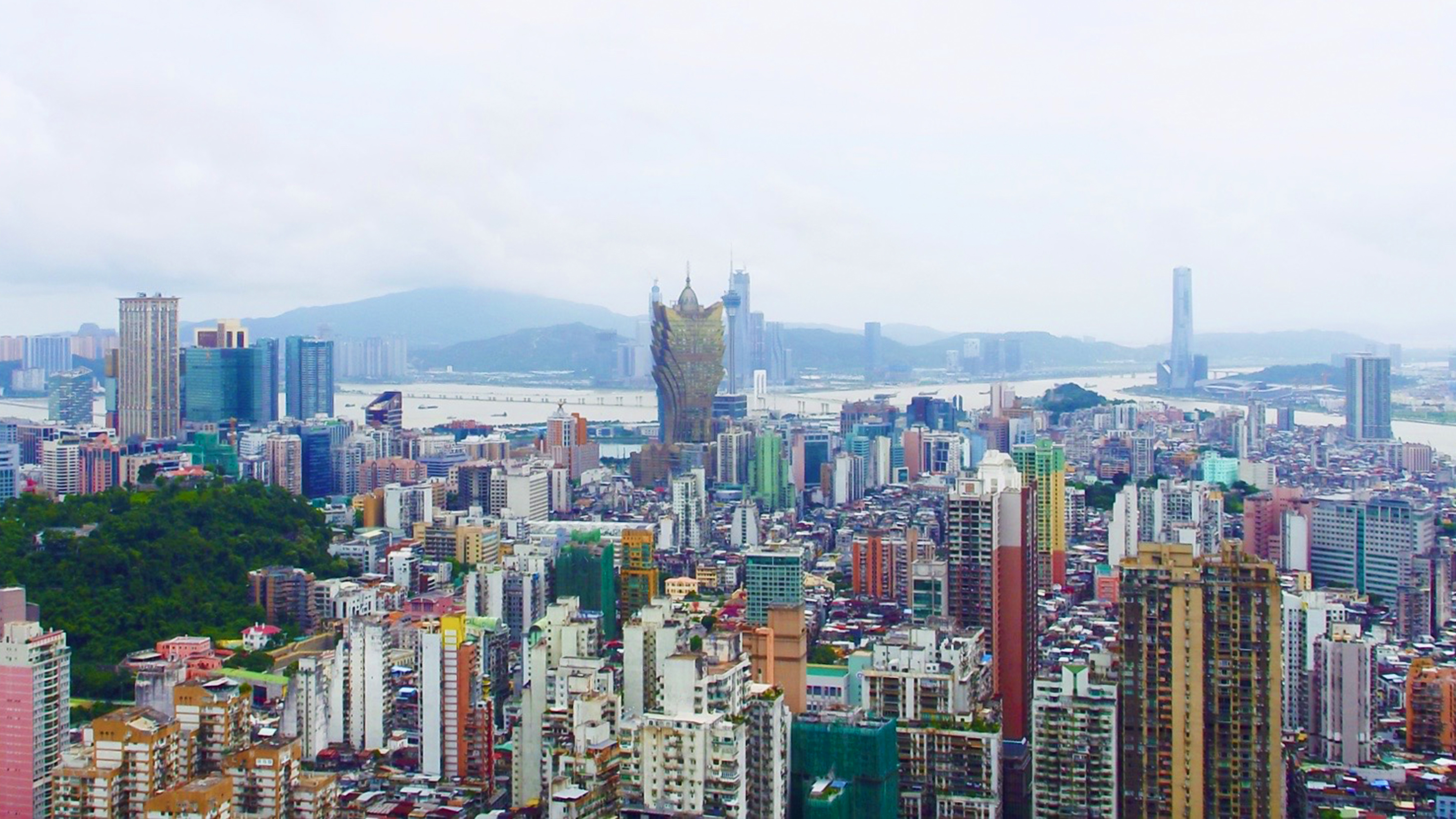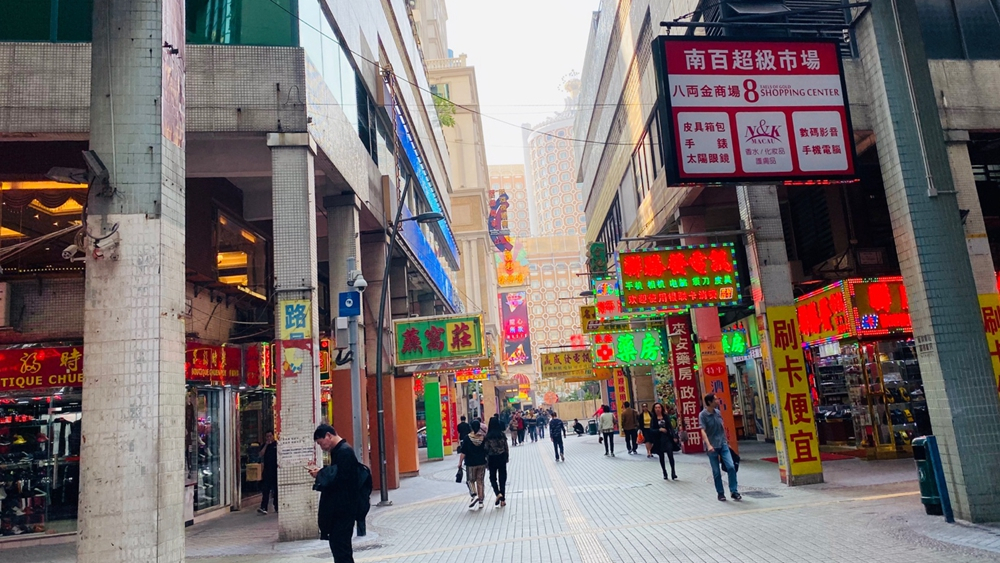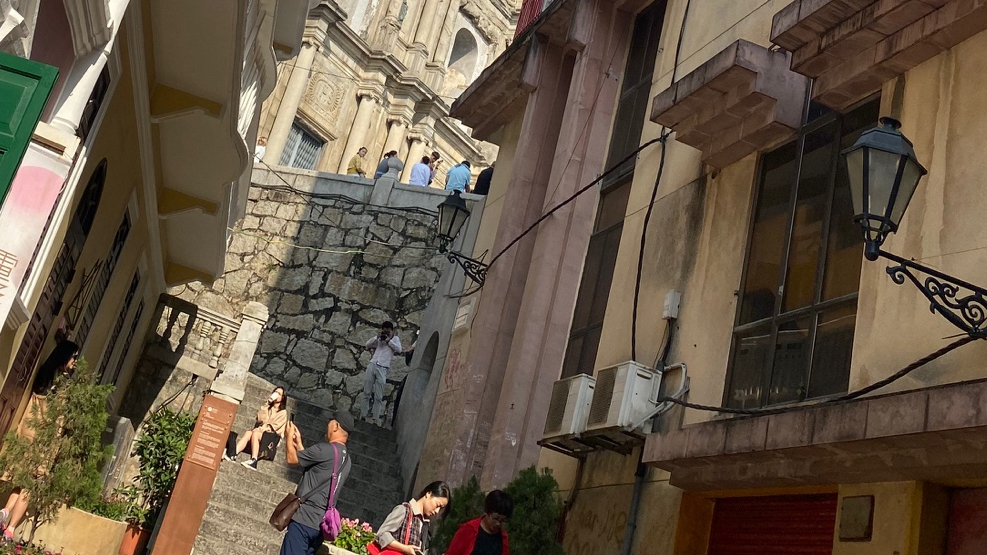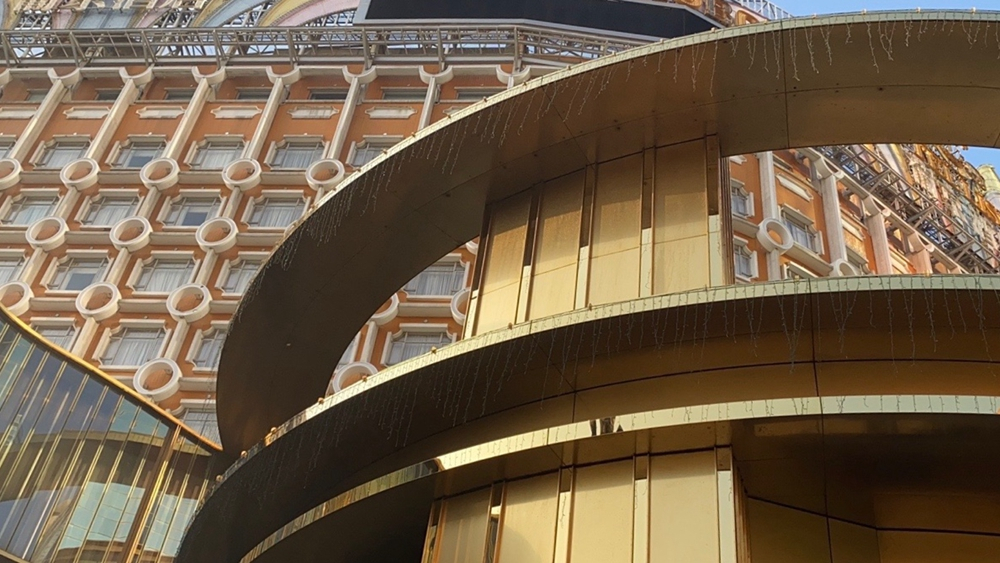02:03

Let's start with Macao's name, which could date as far back as 1555. Local inhabitants believed that the sea goddess Mazu was the protector of the harbor, calling the waters around the Mazu Temple there "Ma Kok".
When Portuguese explorers first arrived in the area and asked for the place's name, locals thought they were asking specifically about the temple and told them it was called "Ma Kok". Ever since, the city was referred to as "Ma Kok", which, by the the 17th century had evolved into Macao.
In Cantonese, the local dialect, or in mandarin Chinese, the city's name literally means "bay gate", which refers to the whole territory.

Shops with flashy placards in Macao's older district. /CGTN Photo
Shops with flashy placards in Macao's older district. /CGTN Photo
My 'culture shock'
This year marks the 20th anniversary of Macao's return to China, hence my trip to the city.
My first impression was that it was colorful – but a bit tacky.
Walking on the streets of this small city, you can't miss Macao's luxurious and flashy hotels, alongside the enduring fusion of Macanese and Portuguese culture. Even during the daytime, shops don't bother switching off their neon lights for fear that customers might assume they're closed – not quite eco-friendly, I'm afraid.
Food shops are usually quite small, even tiny, but they cannot be underestimated. Tourists have to queue to sample the most authentic Macanese food, which is a fusion of Cantonese and Portuguese flavors.
Unlike the Chinese mainland – where e-commerce is highly advanced – in Macao, I felt thrown back to the old days of paying with cash and hailing a taxi on the streets.
The Statistics and Census Service estimated Macao's population to be over 600,000 at the end of 2018. Among them, over 10 percent are non-ethnic Chinese minorities, primarily composed of Filipinos, Vietnamese and Portuguese. With a size of slightly over 30 square kilometers, the city is among the most densely populated regions in the world. Thanks to its vibrant economy, Macao's per capita GDP ranks among the world's highest – somewhere over 80,000 U.S. dollars.

Buildings fuse Chinese and European architectural styles. /CGTN Photo
Buildings fuse Chinese and European architectural styles. /CGTN Photo
Tourism
Official figures reveal that more than 57,000 people were employed in Macao's tourism sector in 2018. Macao is heavily reliant on its tourism industry, most notably its casino which accounts for over half of its annual revenue.
When Macao was returned to China in 1999, its gaming industry was not as competitive internationally, said Wang Changbin, director of the Center for Gaming and Tourism Studies at the Macao Polytechnic Institute. "However, its development was so fast that the revenue generated in Macao's gaming sector surpassed that of Las Vegas' in 2006," he added.
Known as Asia's gaming capital, Macao has been striving to diversify its economy and reduce its reliance on the gaming sector.
The city has been bringing in big international hotel brands, for example, points out Pansy Ho, co-chairperson and executive director of MGM China. "In the past 20 years, I would say Macao is the one place that has been able to capture a great and significant development of the hospitality area," she observed.

One of the most iconic gaming hotels in Macao. /CGTN Photo
One of the most iconic gaming hotels in Macao. /CGTN Photo
Return to China
The territory is first known to have been settled in during the Han Dynasty – about 2,000 years ago.
Following the arrival of Portuguese explorers at the beginning of the 16th century, the city was permanently leased to Portugal in 1557. Macao served as a major port city until the establishment of Hong Kong in the wake of the First Opium War in the 1840s.
Fast forward to the 1980s, when China entered negotiations with Portugal over Macao after it had concluded arrangements with the United Kingdom on Hong Kong's future. In 1987, a Joint Declaration on the Question of Macao was inked, in which Portugal agreed to return the colony to China in 1999 on the premise that the latter would guarantee Macao's political and economic systems for 50 years after the transfer.
"I think that is in fact a most crucial and in fact timely policy that we are entering into. Macao in the past 20 years has grown from a small and more internalized tourism development to now being able to be reckoned in the international framework," said Pansy Ho.